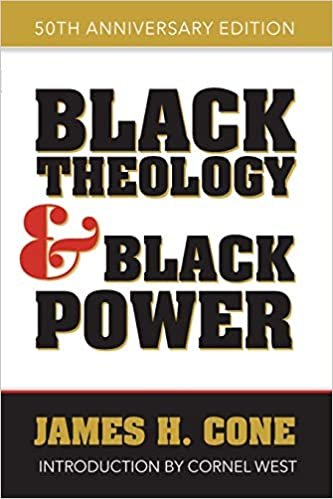
Black Theology and Black Power does not seek to reconcile the Gospel of Jesus with the Black Power movement. Instead, it boldly declares that the Gospel of Jesus is one with the Black Power movement.
When I First Read Cone
Cone sat on my reading list for years but I failed to buy or loan his books. However, as the sun rose on May 24, 2020, I purchased this book as well as A Black Theology of Liberation (review pending). I read the forward to Liberation and learned that Cone wrote Black Power first. I decided I would read them in order of their writing, but the forward to liberation captivated my attention. Reflecting on Memorial Day Weekend and the words introducing what I would soon read, I offered the following on Facebook:

A mere 36-hours later, four Minneapolis police officers murdered George Floyd. His murder sparked worldwide protests calling for social justice. Voices so powerful, NFL Commissioner Roger Goodell finally admitted the league erred when silencing player protests over police brutality.
In this context, I read Black Theology and Black Power.
Black Theology And Power … White Theologians
In an updated introduction for the 50th Anniversary Edition, Cone reflects on the text and acknowledges both his gender bias and the ironic exclusion of Black theologians. Voices like those of Barth and Bonhoeffer abound, but Black voices beyond Cone’s are rarely heard. Although, I must sadly admit, for those who wrote between Athanasius (whose enemies called him, the Black Dwarf) or maybe Augustine (there’s debate about the pigmentation of Berbers) and Cone, I doubt I would recognize their names if I saw them.
While Cone himself laments on this reflection, I believe it opens the door to an unintended reader. Cone states his intent to write to and for a Black audience. However, the use of primarily German theologians invites those with European ancestry to ask, “Is Black Power the logical and correct application of our theology?”
I believe Cone answers that question with an astounding, “Yes!”
Consequentially, segregation and racism within conservative and White Evangelical threads of Christianity, indicates a failure to live out our confession. Cone teaches us how to read what we claim to believe. For that reason, I see this text as essential reading for every pastor or theologically astute layperson, whatever your ancestry.
Quotes from Black Theology and Black Power
[ngg src=”galleries” ids=”2″ display=”basic_slideshow”]